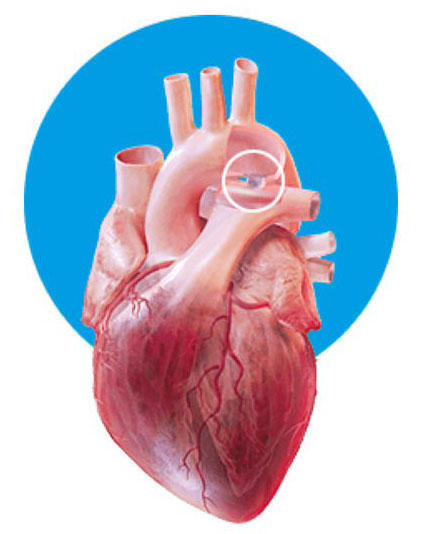 The Cherese Mari Laulhere Children’s Heart Institute at MemorialCare Miller Children’s & Women’s Hospital Long Beach is one of the few programs in Southern California that offers comprehensive cardiac care for children of all ages, as early as in utero, through young adulthood. Should surgery be needed, the Pediatric & Adult Congenital Cardiac Surgery Program treats virtually any congenital heart defect, no matter the age of diagnosis.
The Cherese Mari Laulhere Children’s Heart Institute at MemorialCare Miller Children’s & Women’s Hospital Long Beach is one of the few programs in Southern California that offers comprehensive cardiac care for children of all ages, as early as in utero, through young adulthood. Should surgery be needed, the Pediatric & Adult Congenital Cardiac Surgery Program treats virtually any congenital heart defect, no matter the age of diagnosis.
The Institute’s Congenital Cardiac Catheterization Program diagnoses and treats various heart conditions using the latest technologies, including bi-plane and three-dimensional imaging. Patients recovering from surgery, cardiac catheterization and those with other serious heart conditions are cared for in the Cardiothoracic Intensive Care Unit, which provides specialized, dedicated cardiac care for children.
Recently, the medical director of pediatric cardiology and congenital cardiac catheterization, Saar Danon, M.D. and his pediatric interventional cardiology colleague, Christopher Tan, M.D., performed the Children’s Heart Institute’s 10th patent ductus arteriosus (PDA) device closure in a premature infant using the recently FDA-approved device, the Amplatzer Piccolo Occluder.
PDA is one of the most common congenital heart defects in extremely low birth weight babies. This occurs when the blood vessel that is present in the fetal heart does not close following birth. This leads to increased blood flow to the baby’s lungs, making it more difficult to breathe. Small PDAs may not cause a problem, but a large PDA can lead to life threatening issues.
Historically to help correct PDA in infants and children, there were devices approved by the U.S. Food & Drug Administration, but those are too large to be used in extremely low birth weight babies. Therefore, these babies underwent a surgical procedure performed through the side of their chest.
That is where the new Amplatzer Piccolo Occluder (Piccolo device) comes into play. The Piccolo device is smaller than a pea, and can be delivered into the PDA via a vein in the infant’s leg. This is done using a combination of echocardiographic and fluoroscopic guidance in the Children’s Heart Institute’s catheterization laboratory.
PDA occlusion is a revolutionary step in saving and improving the lives of fragile premature babies. The cardiologists at the Children’s Heart Institute collaborate closely with neonatologists in the MemorialCare Miller Children’s & Women’s Extremely Low Birth Weight Program in its Small Baby Center to develop a unique clinical road map for each premature baby.
This approach minimizes potential surgical complications. It also is performed through a minimally invasive approach, reducing pain, and resulting in quicker recovery for an already extremely fragile baby.
The Children’s Heart Institute at MemorialCare Miller Children’s & Women’s stands for innovation in patient care, all while taking a family centered approach – ensuring that each baby and family get the specialized neonatal and pediatric care that only a children’s hospital can provide.
